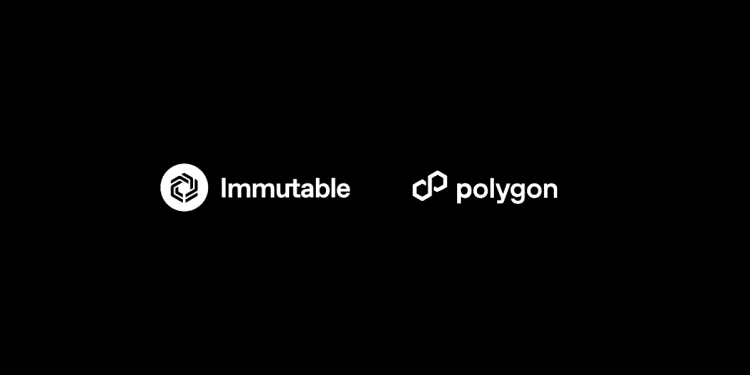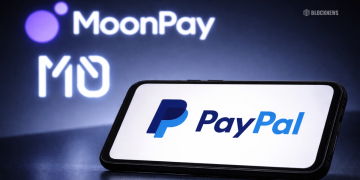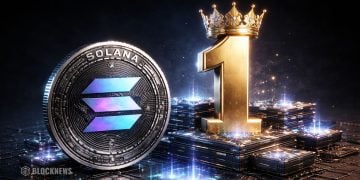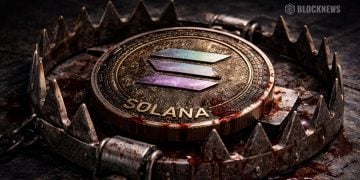- Immutable’s Web3 gaming platform enters public testing, supported by Polygon Labs.z
- The Ethereum-based zkEVM platform targets developers to boost ownership rights for gaming fans.
- Over 20 game companies, including GameStop and Kongregate, show support for Immutable’s initiative.
Immutable, with the backing of Polygon Labs, is pushing its Web3 gaming platform into public testing. This move comes months after the two firms publicly acknowledged their partnership. Polygon’s Ethereum scaling solution, known as zkEVM, was introduced to the primary network on March 27, marking a significant milestone.
By making its Ethereum Virtual Machine (zkEVM) that relies on zero-knowledge available to gaming developers, Immutable offers a unique value proposition. Developers are likely to see reduced costs while enjoying the advantages of the Ethereum ecosystem. Robbie Ferguson, one of the founding figures of Immutable, underscored that their main goal with the zkEVM platform is to augment the rights of those passionate about Web3 gaming.
With the new venture gaining traction, over 20 gaming companies are showing their support for Immutable. The list of supporters includes recognized brands like GameStop, Kongregate, TokenTrove marketplace, and iLogos, to name a few. Presently, 12 gaming developers are in the early stages of building their Web3 titles on zkEVM. One notable mention, MetalCore, has announced its beta launch on the platform scheduled for September 15.
Immutable’s zkEVM testnet leverages the capabilities of zero-knowledge proofs to enable a smooth transition process between its platform and Sepolia Ethereum. This arrangement offers a sneak peek for developers into the workings of the mainnet, prepping them for its official debut.
Designed for easy interaction with Ethereum apps, Immutable’s latest release provides a streamlined path for developers. They can transition their Ethereum-centric projects to this innovative platform with minimal adjustments. Immutable’s next step is to introduce a Relayer. This new feature will tackle currency abstraction and gas sponsorship, creating an environment where game developers can establish gas-free wallet accounts.
Alex Connolly, who holds the position of Chief Technology Officer at Immutable and is also its co-founder, envisions the network resonating well with the developer community. In his view, merging the new chain with existing platform products results in a solution finely tuned for the demands of the gaming sector.
On a related note, Ethereum’s founder, Vitalik Buterin, expressed his perspective on zkEVMs. He opined that even with challenges like potential latency and data inefficiencies, these tools could be instrumental in boosting Ethereum’s ability to scale.
NFTs Continue to Transform Video Game Dynamics Despite Criticisms
Non-fungible tokens (NFTs) are evolving the video game industry by adding layers of value and ownership. Unlike traditional in-game items, which players can purchase or earn but never truly own, NFTs offer verifiable digital ownership of unique assets, often using blockchain technology.
When integrated into games, NFTs allow players to have one-of-a-kind items, such as skins, weapons, or characters. These items have real-world value and can be traded, sold, or held as collectibles. This challenges the traditional gaming model, where assets remain under the game developer’s control and have no tangible value outside the game’s ecosystem.
Furthermore, NFTs can grant gamers economic empowerment. Players can potentially earn from their time and skill, turning gaming from just a leisure activity to a possible source of income. For instance, in some games, players can design unique items, tokenize them as NFTs, and sell them to other players.
However, as the NFT trend grows, so do concerns. Issues like environmental impact, speculative bubbles, and the potential for scams are points of discussion. The full impact of NFTs on the gaming landscape remains to be seen, but their influence is undeniable.













